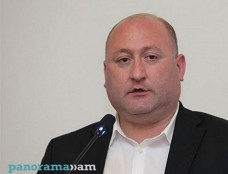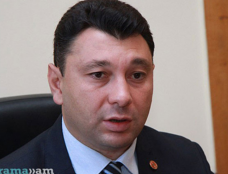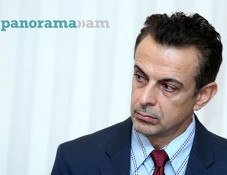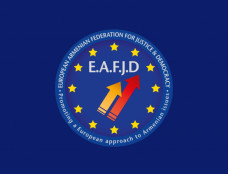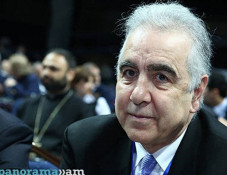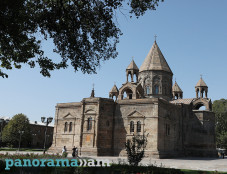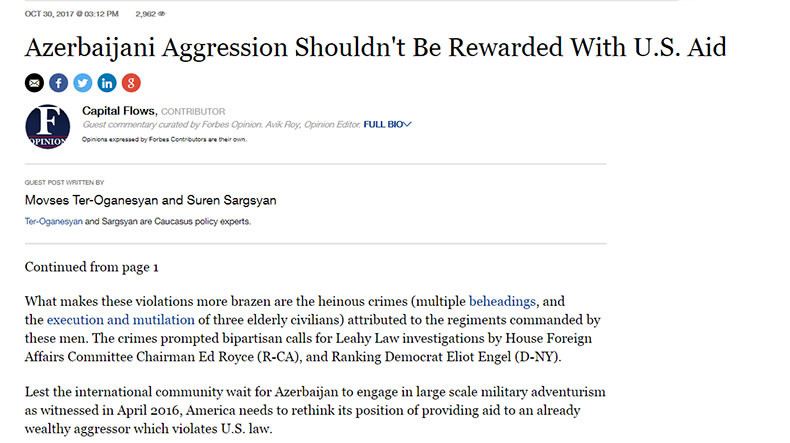
Azerbaijani aggression shouldn't be rewarded with U.S. aid
Forbes has published an article written by Movses Ter-Oganesyan, a fellow at the Eurasian Research and Analysis Institute, and Suren Sargsyan, the cofounder of International and Comparative Law Center, Yerevan Armenia.
The article makes a reference to the fact that U.S. Congress passed Section 907 of the FREEDOM Support Act in 1992, banning direct aid from the U.S. to Azerbaijan unless the president determines that Azerbaijan takes demonstrable steps to cease all blockades and other punitive uses of force against Armenia and NKR.
“This policy remained unchanged until just after the 9/11 terror attacks. President Bush requested a waiver of 907 to allow Azerbaijan to receive aid. Every year since then, the president has waived 907 allowing this oil-rich nation on the Caspian Sea to receive $20 million in American aid.
April 2016 saw the biggest explosion of violence along the Line of Contact between NKR and Azerbaijan since the 1994 ceasefire agreement signed by Armenia, NKR, and Azerbaijan. In launching these attacks, Azerbaijan violated the preconditions set by Section 907. The text of the waiver does not mention that aggression cannot be directed against NKR, a crucial point of the original text which helped ensure cessation of hostilities. Omitting this language has certainly emboldened the political and military leadership of Azerbaijan to see what they can get away with. Coupled with the laissez-faire attitude of the Trump administration toward the region, it is a matter of time before Azerbaijan tests the waters once more,” reads the article.
The authors of the article highlight the fact that in an obvious violation of the ceasefire terms, Azerbaijani Army officers trained by the U.S. Army as part of the U.S. aid to Azerbaijan – Colonel Vugar Yusifov, who was trained at the U.S. Army Intelligence Center at Fort Huachuca, Arizona in 2007 and Lieutenant Colonel Murad Mirzayev, who attended the Defense Language Institute in San Antonio – were found killed in action in the Armenian village of Talish during the fighting in April.
“What makes these violations more brazen are the heinous crimes (multiple beheadings, and the execution and mutilation of three elderly civilians) attributed to the regiments commanded by these men. The crimes prompted bipartisan calls for Leahy Law investigations by House Foreign Affairs Committee Chairman Ed Royce (R-CA), and Ranking Democrat Eliot Engel (D-NY).
Lest the international community wait for Azerbaijan to engage in large scale military adventurism as witnessed in April 2016, America needs to rethink its position of providing aid to an already wealthy aggressor which violates U.S. law,” the article concludes.
Newsfeed
Videos





